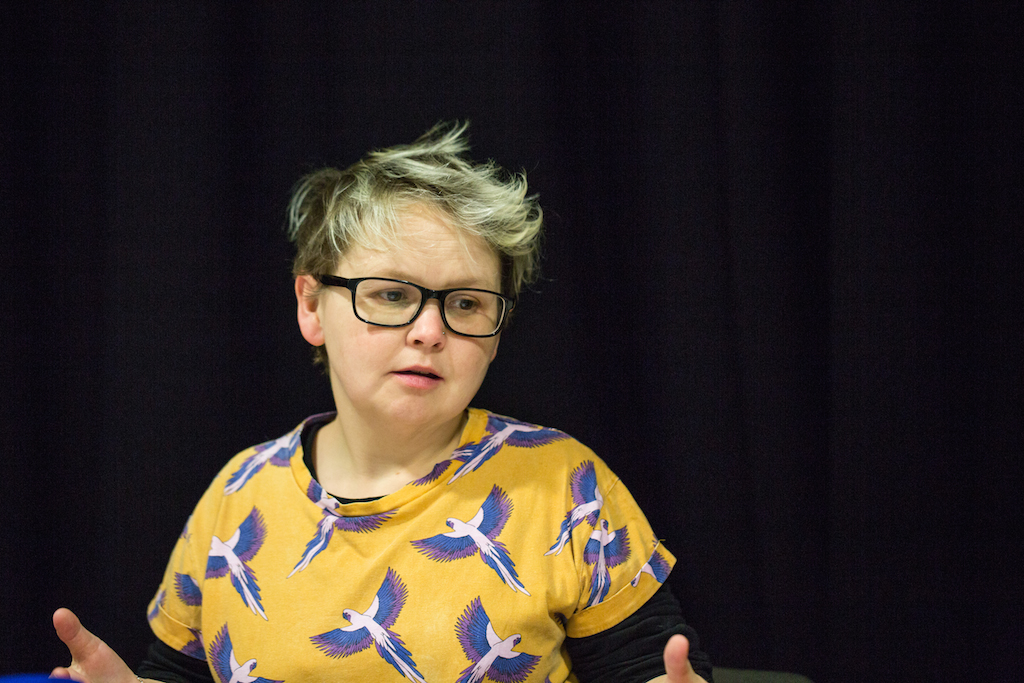
04 Mar SDUK BLOG – Disability Representation Matters
Among an array of disappointing findings from Arts Council England’s latest diversity report, one statistic stood out as particularly shocking: the percentage of disabled workers in National Portfolio Organisations is 6%, compared with 21% in the national working-age population. For Nicola Miles-Wildin, associate director at Graeae Theatre Company, that under-representation just isn’t good enough.
“It is thoroughly disappointing, mainly because it’s a statistic that doesn’t seem to be increasing, and particularly when you know there are a lot of D/deaf and disabled artists out there working,” she says. “Where is our representation, both on and off stages? It’s about time people stood up and took notice.”
In response to the report, and to the Arts Council’s suggestion that any NPO failing improve its diversity statistics risks losing funding, several theatres have promised to act quickly. This, though, is just another part of the problem, according to Miles-Wildin.
“I get bored because every time the next round of NPO funding comes along, everybody wants to know D/deaf and disabled artists, and that just makes you feel like a tick-box campaign,” she says. “You are used for one project and then there’s no continuity, there’s no legacy. We are forever seen as emerging. We are never given established status, and that’s just another form of marginalisation.”
What is needed, according to Miles-Wildin, is a change of attitude across the industry. She says: “We can’t just be the flavour of the month. We have to be the everyday. And yes, it has got to happen across all departments, but the person at the head of the ship has to start taking responsibility. If its not happening at the top, then why should it happen anywhere else?”
On a practical level, continues Miles-Wildin, there are several fronts on which those in leadership positions – executive directors, artistic directors, show directors, board members – can act. Below, she outlines four of them.
1. Prioritise disability
Firstly, says Miles-Wildin, theatres need to make sure disability is at the forefront of their planning. It can’t just be an afterthought.
“I’ve been at meetings where disability isn’t even on the agenda, and that infuriates me,” she says. “For real change to happen, disability needs to be a lot higher on the list of priorities, in every discussion.”
“Leaders need to start stepping up and getting everyone underneath them on board,” Miles-Wildin continues. “That means making sure everyone understands the social model of disability. That means making sure everyone has had disability equality awareness training. And that comes from the top.”
2. Improve audience access
Secondly, she wants theatres to improve their accessibility, both in the actual buildings themselves – it goes without saying that most areas of a theatre, from backstage to front-of-house, should be physically accessible – but also in productions. That way, she points out, disabled people will feel at home in theatres, and more will see it as a viable career.
“If you’re not being welcomed into a theatre, you won’t want to work there,” says Miles-Wildin. “Not every production has to have a fully integrated cast, but you can make a huge change in terms of a show’s accessibility very easily.”
Captioning more shows, integrating sign language more often, taking care with producing audio descriptions – all of these are viable, and often uncomplicated options, she says. Employing specialist consultants for the D/deaf or visually impaired is also a simple way of assessing and then improving a show’s accessibility. And, Miles-Wildin points out, “if you build it, they will come.”
3. Widen the net
There is a straightforward answer to the question: how can we employ more disabled people? The answer is to appoint more disabled people – and that means advertising in the right places, and making sure applications and interviews are accessible, removing bias from the appointment process.
“Where are you advertising for theatre roles?” asks Miles-Wildin. “Are you putting advertisements on Disability Arts Online? Are you sending your adverts to us here at Graeae? Where are you circulating them, and in what format can people apply? Can they send a voice recording? Can they send a short film in BSL?”
And, if a theatre already employs disabled staff, she continues, they need to make sure they are offering them enough support. Miles-Wildin says: “A lot of disabled people are struggling with cuts to their care package, or with the change to the personal independence payment. And that comes with a real mental and emotional strain, and theatres need to think about what they can do to assist people in those positions. Not everyone can work 87 hours a week.”
4. Collaborate
There is undoubtedly a lot to do, says Miles-Wildin, if the far-reaching change she and her colleagues at Graeae tirelessly campaign for is to be achieved. But it is important for theatres and those in charge of them to remember that they are not alone. Help, if they want it, is at hand.
“We at Graeae are always here to offer advice and assistance,” she says. “But we are not just an arts consultancy, we are artists, too. Come and watch our work and see what you could achieve. Come and do a co-production with us. Come and chat to us. Let’s see what we could do together.”
Article written for SDUK by Fergus Morgan (www.fergusmorgan.com)
